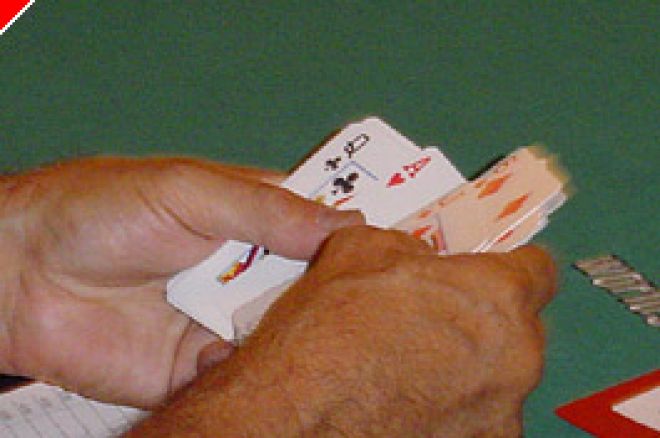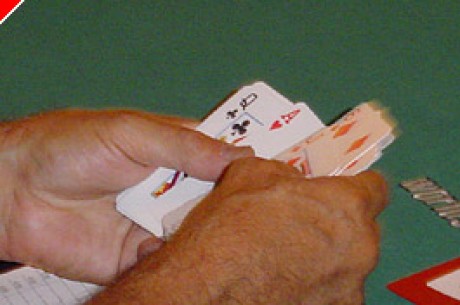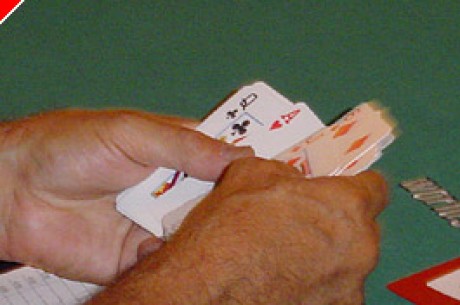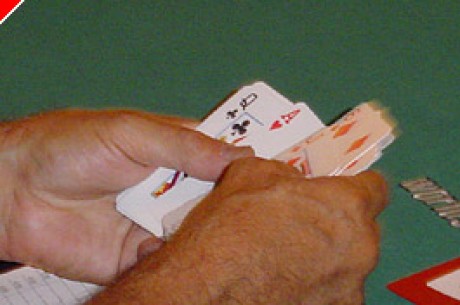Stud Poker Strategy - Don't Make the 'Auto Call'

In Stud, there are many calls that even experienced players make automatically. This is, in my opinion, a hole in their game that needs to be plugged. Let me share my observations and thoughts with you.
You're to the left of the $3.00 bring-in in this $10/20 game. You have (Ts 8h)Td. You look around the table. Most are pretty tight. There's a King followed by an Ace out. You have a relatively tight image yourself. You raise to $10, completing the bet. You'd be happy to take the $11 in antes and bring-in. But you wouldn't be too upset if one of the other players called you - as you'd expect that they'd either be chasing with a lower pair, a flush or straight draw, or may three high cards. The pot is folded to the King. He raises to $20.00
Many players automatically call here, figuring that they're already in for $10, that they may catch trips or two pair on the next card, and that they don't want to back down once they've shown aggression, lest they give the other players the impression that they can be easily pushed around.
You shouldn't do that. Don't make this auto-call. Fold.
You see, you have all of the ingredients for the fold - except losing face. The raise demonstrates great strength - especially from a tight player who knows that you're likely to have at least a pair of tens. Aggression from him after aggression from you should tell you that you probably have the second best pair without an overcard. You need to overcome the desire to stay in. You need to fold.
Here's another situation. You call the bring-in with a low pair and a low kicker hoping that the pot is not completed. But someone in late position with a middling card higher than yours does raise. A couple of people call. Don't be one of them. You have only two cards that will likely put you in the lead - not sufficient to justify a call - even with the relatively good pot odds you're getting. Fold.
When you're check raised by anyone other than a maniac and you don't have a good draw to a hand that's likely to beat the hand that your check-raising opponent is representing you should usually fold, not call. But calling is generally what even good players do. Here's an example of that.
You have (As9h)Ah6s3c7s on Sixth Street. Your opponent, who has called behind you the whole way so far has (xx)Th5c8h5h. The game has been relatively loose as have you. The pot was four-way until Fifth Street when everyone but this lone opponent dropped to your bet.
Your opponent checks with his exposed pair of 5s. You bet your pair of Aces, not wanting to give your relatively tight and solid opponent a free card. He raises you, carrying out a check-raise. It's tempting, and for many automatic, to call along and hope that either your opponent is trying a tricky bluff or that you'll miraculously hit a card that will make you a winner. Don't. Fold. He's almost certainly way ahead and you're probably drawing dead.
You can probably come up with other situations where you feel in your gut that you have to call but that you really should fold. The bottom line is that there's no rule that says you can't fold after you've put money in the pot during any given round. You don't have to wait until the next round to fold. You can do it right away and save yourself the cost of calling a raise.
Now of course you don't want to make a habit of this or you might encourage your more observant opponents to make aggressive moves against you just to induce you to fold. But the situations when you face aggression like this are usually fairly well spaced apart. So you can usually treat them as the sign of top notch hands that they almost always are.








